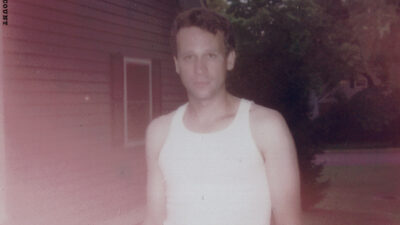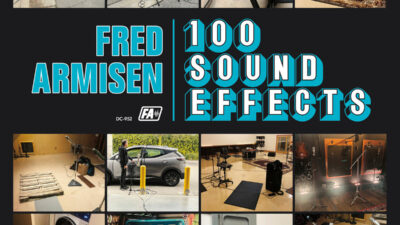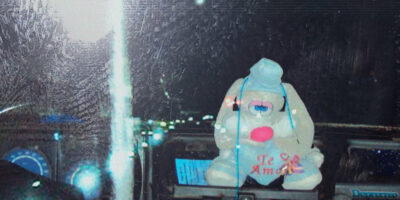This article previously appeared on Crossfader
Open Mike Eagle – BRICK BODY KIDS STILL DAYDREAM
Genre: Abstract Hip Hop, Conscious Hip Hop
Favorite Tracks: “Legendary Iron Hood,” “My Auntie’s Building”
The state of hip hop and rap has changed dramatically since the advent of the internet. Due to the increasing prominence of Soundcloud and Bandcamp, there has been an explosion of deeper, more forward-thinking rap music. A name for this intellectual, at times beat-poetry-inspired, take on hip hop was coined by Michael W. Eagle II, better known as Open Mike Eagle, as art rap. Hailing from Chicago, IL, he has set himself up as a shining antithesis of the macho gangster rap of the 2000s. Open Mike is known for his striking social commentary, sometimes bordering on bleak, mixed with his expressive and eccentric geekiness and humor. Unlike some of his past works that lacked coherence and structure, Open Mike’s newest project, BRICK BODY KIDS STILL DAYDREAM, is one of his strongest narrative albums yet. Mike predominantly raps and speaks poetically about the identity and importance of Public Housing in the states, or “the projects,” found all around the country.
The album kicks off with “Legendary Iron Hood,” which opens with a funky jazz and blues vibe, making it extremely hard not to groove along. Mike’s trademarked nerdy lyricism can be heard right out of the gate with a couple of quippy bars about Black Tom from the X-Men. He goes on to rap from the perspective of Tom’s brother, Juggernaut, making witty lines and jokes that aren’t the most accessible to non-comic book fans, but enjoyable nonetheless. With an album so entrenched within racial politics, Open Mike using a comic book franchise that many see as a representation of systematic discrimination in America enforces the narrative of the album masterfully.
Another standout track is “No Selling (Uncle Butch Pretending It Don’t Hurt).” It starts out with a creaking boom bap beat straight out of an older Tyler, the Creator or Odd Future track. Mike dives into the idea of intense masculinity within our culture and how men are expected to not show emotions, be it physical pain (“I tear my ACL / and wouldn’t even limp”) or more emotional pain (“Had a weird childhood / my shit was wild hood / but crying ain’t my style cause I can smile good”). He goes against the aggressive masculinity through bars such as, “I ain’t yelling / I ain’t even mad / my favorite phrase is, ‘so what?’” It’s extremely refreshing to hear a rapper delve into the issue of overly aggressive masculinity within much of society—especially within the rap community. With the rising prominence of trap rap and its testosterone-fueled ideals, it’s easy to become desensitized to it and accept it as the status quo. Despite the verses being a poignant critique on male culture, the chorus “But I’m no selling” seems to almost repeat ad nauseum throughout. The beat dramatically slowing down during those moments really throws off the rhythm, momentum, and aggression that Mike builds up.
“Happy Wasteland Day” comes at the listener with a beat seemingly inspired by Gorillaz’ HUMANZ, albeit much more successful. The stumbling, lo-fi instrumental, accompanied with a twanging guitar riff, draws the listener right alongside Mike in his post apocalyptic journey. This is contrasted seamlessly with Mike’s biting lyricism on the current state of politics within America: “When the king is a garbage person / I might wanna lay down and die / Power down all the darkest urges / keep my personal crown up high…” He goes at the issues, be them real or absurd, with a great sense of nihilism sprinkled with humor: “Now we all in a zombie movie / only weapon is common sense / zombie sheriff’s tryna to lynch us / guess I’ll call up my congressmen.” Mike’s ability as an MC really shines through his intentional lyricism, not naming any specific issues or people and allowing for this track’s shelf life to last longer.
“Daydreaming in the Projects” comes with an instrumental similar to that of Groundislava or other chiptune artists, with an infectiously catchy, synth-soaked beat. Mike opens himself up once again, showing a vulnerable side of through lyrics such as, “Shout out to hip hoppers I met in high school / Y’all saved my life Thursday afternoons.” This sort of sensitivity adds validity to Mike’s overall message of the importance of the projects. For Open Mike, the gargantuan public houses are far more than what most of society thinks of them. Much like the album cover, they have taken on an identity and culture of their own. There is a blissfully melancholic nature to the song when the chorus pipes in with the sorrowful horns paired with the youthful lyrics of, “Ghetto children / making codewords / Ghetto children / fighting dragons / in the projects around the world,” helping to further establish an identity for the nameless individuals living within these projects.
“Brick Body Complex,” the title track of the album, is also my favorite. Mike forgoes all the subtlety he brought forth on the other tracks and raps from the perspective of a building within the projects. This out-of-the box creativity is extremely refreshing and would still be respectable even if Mike did not pull it off as well as he does. The end of the hook could have been a little less in your face with it’s directness (“A giant and my body is a building / a building / a building / a building…”), but Mike still brilliantly paints the image of a lone project, decrepit and neglected, but still standing strong. He is able to make a case on the importance of the endurance of the projects. Mike flexes his proficiency as a rapper on this track as well; on the second verse, he shows a sense of flow and aggression that I’d love to hear more of. The bar, “Indivisible in divisable kids and criminals young and old,” comes off so smooth that upon my first listen, I audibly exclaimed.
The final track of the album, “My Auntie’s Building,” is the LP’s closest thing to a banger or a traditional hype track. The disjointed, stumbling beat is one of the darkest on the album and the lyrics only accentuate this, for they are even gloomier then the beat. Mike not only uses the track as the literal ending of the album, but it also serves as a parallel to the ending of the projects themselves: “They blew up my auntie’s building / put out her great grandchildren / who else in America / deserves to have that feeling.” Mike being the eccentric and, at times, brilliant MC he is, is able to compare the current demolishment of the projects to racial injustice: “They say America Fights fair / But they won’t demolish your timeshare…” He delivers one biting bar after another with a sense of ferocity that I hope to see more often going forward on future projects.
BRICK BODY KIDS STILL DAYDREAM can, upon the first couple of listens, come off as cumbersome and difficult to get through. If one is unfamiliar with Open Mike’s rapping style, which at times can borderline on spoken word on a stripped down hip hop beat, it can be a jarring first listen. But despite this, Open Mike Eagle has come forward with an ambitious album, both lyrically and conceptually, that will reward a dedicated listener willing to work through such a demanding album.
Verdict: Recommend
















Comments